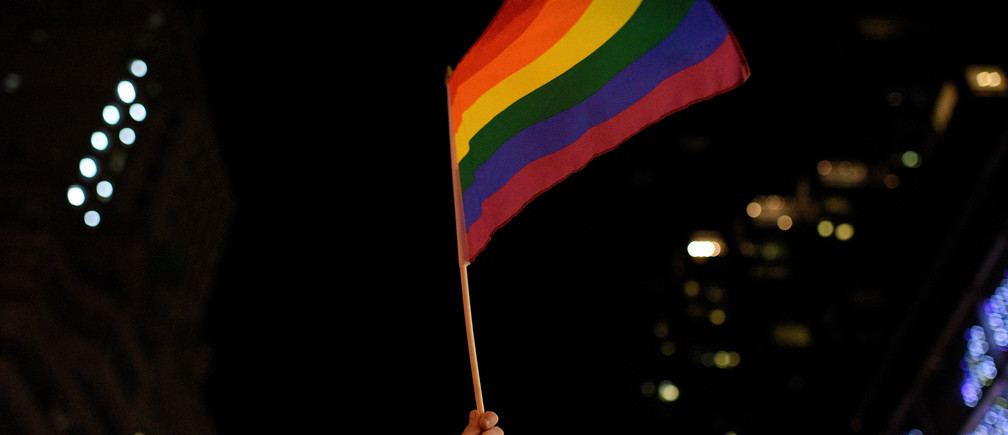
Kathmandu/Pahichan – 2016 saw some strides towards equality for members of the LGBT community, including some firsts. For instance, Malta became the first European country to ban conversion therapy.
Under the new Affirmation of Sexual Orientation, Gender Identity and Gender Expression Act, anyone found guilty of trying to “change, repress or eliminate a person’s sexual orientation, gender identity and/or gender expression” faces fines or a jail sentence.
Taiwan is about to allow same sex marriage, making it the first Asian country to do so.
Justin Trudeau, the Canadian Prime Minister, became the first sitting prime minister to participate in the country’s Pride festival.
Elsewhere, homosexuality was decriminalized in the Seychelles and in Belize.
But there is still a long way to go. According to Human Dignity Trust there are 75 jurisdictions that continue to make private, consensual sexual conduct between adults of the same sex ilegal.
And only five countries in the world – Bolivia, Ecuador, Fiji, Malta and the UK – have constitutions that explicitly guarantee equality for citizens on the basis of sexual orientation as well as gender identity, according to a recent UCLA study.
Meanwhile, the changing political climate under the Donald Trump administration has prompted concern among gay and transgender groups about what might happen to LGBT rights in the US.
These 11 maps, collated by Equaldex, show the state of LGBT rights across the world.
Where is homosexuality still illegal?
The latest Equaldex research shows that consensual sexual activity between individuals of the same sex is legal across the northern hemisphere. But across swathes of Asia, Africa and the Middle East it remains illegal.
In some countries, it is punishable by death – in Mauritania, Saudi Arabia, Iran and Afghanistan.
In other countries, it’s illegal only for men. For example, in Turkmenistan, Sierra Leone and Zimbabwe homosexuality is illegal for men but legal for women. In no country is it the other way round.

Where can same sex couples get married?
Despite many countries legally recognizing same sex couples, some of them still outlaw same-sex marriage. This map shows the clear East/West divide between where you can marry a same-sex partner and where you can’t. Colombia legalized same sex marriage in the last year, but it became illegal in Botswana.
Australia is an interesting case, because the LGBT community shares many of the same rights as heterosexuals, except when it comes to marriage.
Chile’s president says she will send a gay marriage bill to Congress in 2017.

Changing gender
The right to change gender is legal throughout most of the world, but in most places only after surgery. It is still illegal in around 20 countries.

Same-sex adoption
Across much of the world, same-sex couples cannot legally adopt a child. In those countries where same-sex adoption is legal, many stipulate that couples must be married, or can only do it if they are single. In some cases they can only adopt stepchildren. In Kazakhstan same-sex couples can adopt a child legally, but can’t get married.

Discrimination
Banning discrimination on the basis of a person’s sexual orientation and/or gender identity is illegal in only a handful of countries.
Much of the world offers no protection at all.

Employment discrimination
There are only a few parts of the world where employers are not allowed to discriminate on the basis of sexual orientation and/or gender identity.
Despite concerns about the Trump administration’s diversity policies, the White House released a statement saying it will “continue to enforce the executive order protecting employees from anti-LGBTQ discrimination while working for the federal government or contractors”.

Housing discrimination
Although source information is patchy, it’s clear that the LGBT community continues to face discrimination when trying to find appropriate housing.

Military
A surprising number of countries don’t discriminate against LGBT people joining the military. Last year, having already removed its “don’t ask, don’t tell” policy for all but transgender people, the US government announced that openly transgender people would now be allowed to serve in the military.

Blood donations
Several countries made blood donations by gay men legal in the last year, but many are still subject to deferrals (a waiting time before a man can donate after having sex).
According to Equaldex, blood donation by gay men became legal in Martinique, Papua New Guinea, Ethiopia, Israel, Northern Ireland and Ireland.
But it was banned in Egypt, and a one-year deferral period was introduced in Belgium.

Age of consent
In the last year, the age for consent for heterosexuals and homosexuals was made equal in Australia and Belize. In the US the law remains unclear in several states.

Conversion therapy
Many places in the world continue to allow conversion therapy, which attempts to change a person’s sexual orientation. In the last year this was banned in the US states of New Mexico and New Hampshire, Malta, Ecuador and Uruguay, but allowed in Slovakia, Puerto Rico and the US state of Michigan.

Equaldex is a collaborative LGBT rights website launched in 2014. The crowdsourced project works a lot like a ‘LGBT Wikipedia’ – anyone can join, edit and amend information. Other users are encouraged to authenticate the accuracy of each update and the information becomes verified as site usage increases.
Copyright © All right reserved to pahichan.com Site By: Sobij.